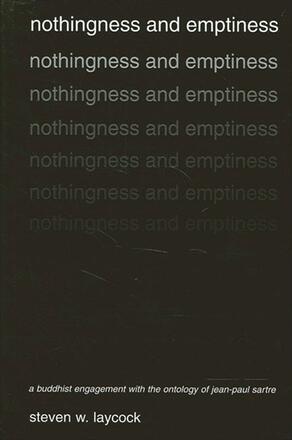
Nothingness and Emptiness
A Buddhist Engagement with the Ontology of Jean-Paul Sartre
Alternative formats available from:
Using Buddhist thought, explores and challenges the philosophy of Jean-Paul Sartre.
Description
This sustained and distinctively Buddhist challenge to the ontology of Jean-Paul Sartre's Being and Nothingness resolves the incoherence implicit in the Sartrean conception of nothingness by opening to a Buddhist vision of emptiness. Rooted in the insights of Madhyamika dialectic and an articulated meditative (zen) phenomenology, Nothingness and Emptiness uncovers and examines the assumptions that sustain Sartre's early phenomenological ontology and questions his theoretical elaboration of consciousness as "nothingness. " Laycock demonstrates that, in addition to a "relative" nothingness (the for-itself) defined against the positivity and plenitude of the in-itself, Sartre's ontology requires, but also repudiates, a conception of "absolute" nothingness (the Buddhist "emptiness"), and is thus, as it stands, logically unstable, perhaps incoherent. The author is not simply critical; he reveals the junctures at which Sartrean ontology appeals for a Buddhist conception of emptiness and offers the needed supplement.
Steven W. Laycock is Associate Professor of Philosophy at the University of Toledo and the author of Mind as Mirror and the Mirroring of Mind: Buddhist Reflections on Western Phenomenology, coeditor (with James G. Hart) of Essays in Phenomenological Theology, also published by SUNY Press, and author of Foundations for a Phenomenological Theology.
Reviews
"Numerous authors have contributed to the phenomenology/Buddhism dialogue, but Laycock's work is perhaps the most detailed and profound meditation on their convergence to date. The book's major contribution is a reassessment of phenomenology—especially that of Sartre—in a global philosophical context. Individuals who care about the development and application of phenomenology will want to own this book. " — Frederic L. Bender, University of Colorado-Colorado Springs
"This book makes an important contribution to comparative phenomenology. " — J. N. Mohanty, coeditor of Phenomenology and Indian Philosophy